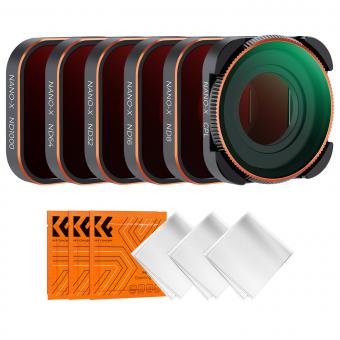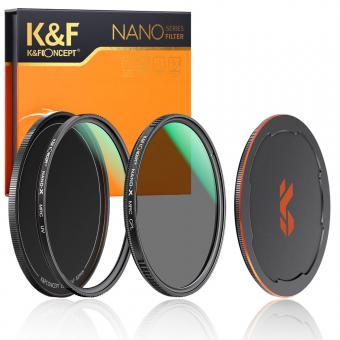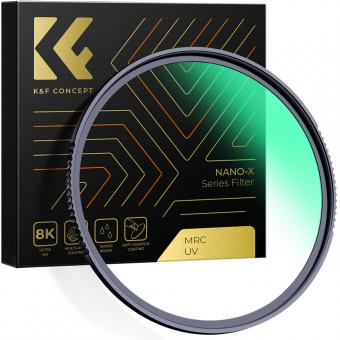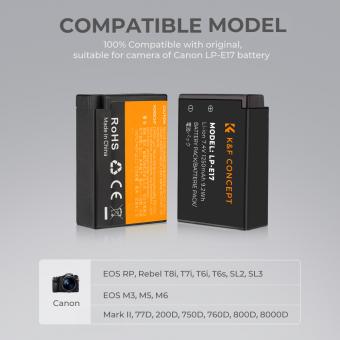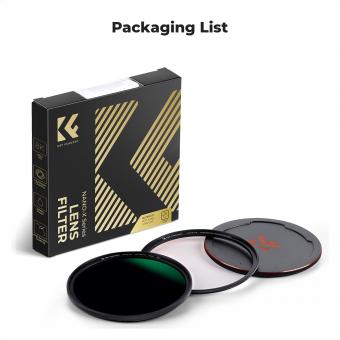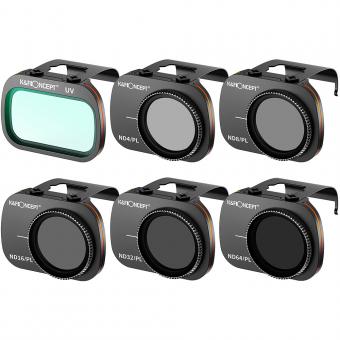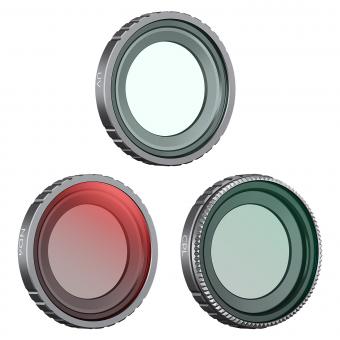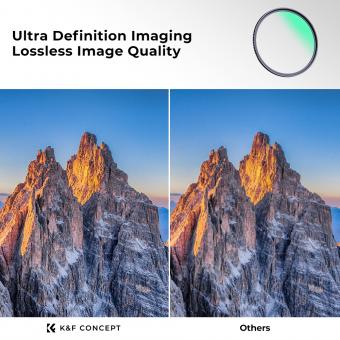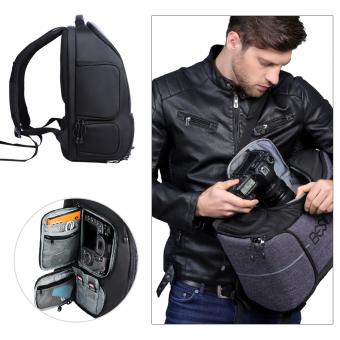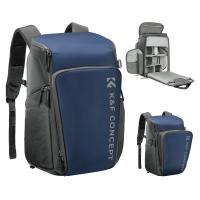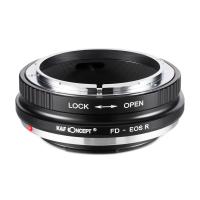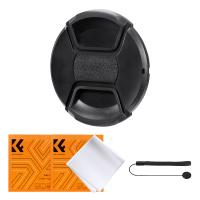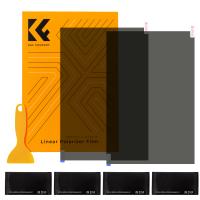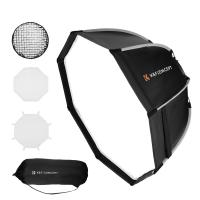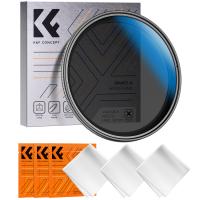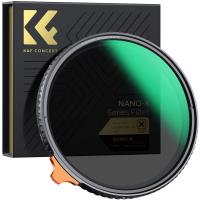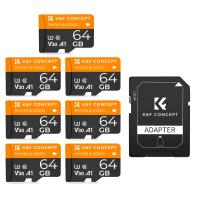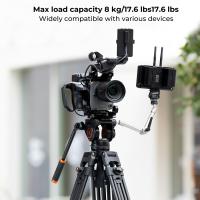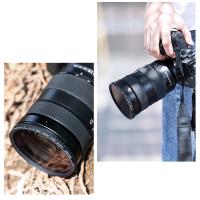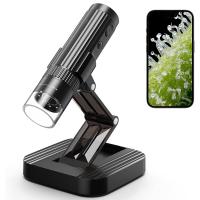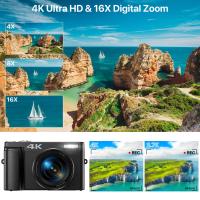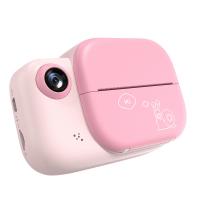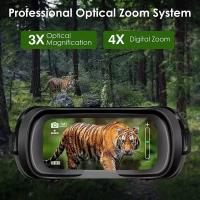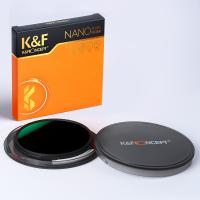What Does A Uv Filter Do For Camera?
A UV filter for a camera is a type of filter that is designed to block ultraviolet light from entering the camera lens. This type of filter is typically made from a special type of glass or plastic that is coated with a UV-absorbing material. The main purpose of a UV filter is to reduce the amount of haze and glare that can be caused by UV light, which can result in images that appear washed out or lacking in contrast. Additionally, a UV filter can also help to protect the camera lens from scratches, dust, and other types of damage. Some photographers choose to leave a UV filter on their camera lens at all times, while others only use it in certain situations where UV light is particularly strong.
1、 Prevents UV light from entering lens
A UV filter is a type of camera filter that is designed to prevent ultraviolet (UV) light from entering the lens of a camera. UV light is a type of electromagnetic radiation that is present in sunlight and can cause a variety of problems for photographers, including haze, glare, and color distortion. By using a UV filter, photographers can reduce the amount of UV light that enters their camera lens, resulting in clearer, sharper, and more accurate images.
In addition to reducing the effects of UV light, some photographers also use UV filters to protect their camera lenses from scratches, dust, and other types of damage. However, there is some debate among photographers about whether or not UV filters are necessary for lens protection, as some argue that they can actually reduce image quality by introducing additional reflections and reducing contrast.
Despite this debate, many photographers continue to use UV filters as a standard part of their camera equipment, particularly when shooting in bright sunlight or other situations where UV light is prevalent. Some newer cameras also have built-in UV filters that can be activated or deactivated as needed, providing photographers with even more flexibility and control over their images. Ultimately, the decision to use a UV filter will depend on the individual photographer's preferences and shooting style, as well as the specific conditions in which they are shooting.
2、 Reduces haziness and improves clarity
A UV filter is a type of camera filter that is designed to block ultraviolet light from entering the camera lens. The primary purpose of a UV filter is to reduce haziness and improve clarity in outdoor photography. When shooting in bright sunlight, UV light can cause a bluish cast to appear in photos, which can make them look hazy or washed out. By blocking UV light, a UV filter can help to eliminate this problem and produce clearer, more vibrant images.
In addition to improving image quality, a UV filter can also help to protect the camera lens from scratches, dust, and other types of damage. This is particularly important for photographers who frequently shoot in rugged outdoor environments, where the lens is more likely to be exposed to the elements.
However, there is some debate among photographers about the effectiveness of UV filters. Some argue that modern camera lenses are already designed to block UV light, and that using a UV filter can actually reduce image quality by introducing additional reflections and glare. Others argue that the benefits of using a UV filter outweigh any potential drawbacks, and that it is always better to err on the side of caution when it comes to protecting expensive camera equipment.
Ultimately, the decision to use a UV filter will depend on the individual photographer's preferences and shooting style. Some photographers swear by them, while others prefer to shoot without any filters at all. Regardless of which camp you fall into, it is important to understand the role that UV filters play in photography and to make an informed decision about whether or not to use them.
3、 Protects lens from scratches and dust
A UV filter is a type of camera filter that is designed to block ultraviolet light from entering the camera lens. The primary purpose of a UV filter is to protect the lens from scratches, dust, and other types of damage that can occur during normal use. By placing a UV filter on the front of the lens, photographers can help to ensure that their expensive lenses remain in good condition for as long as possible.
In addition to protecting the lens, UV filters can also help to improve the quality of photographs by reducing the amount of haze and glare that can be caused by UV light. This is particularly important when shooting in bright sunlight or at high altitudes, where the amount of UV light can be particularly intense.
However, there is some debate among photographers about the effectiveness of UV filters in improving image quality. Some argue that the benefits of UV filters are minimal, and that they can actually reduce image quality by introducing additional reflections and distortions. Others argue that the benefits of UV filters are significant, and that they are an essential tool for any serious photographer.
Ultimately, the decision to use a UV filter will depend on the individual photographer's preferences and shooting style. Some photographers may find that they prefer the added protection and improved image quality that a UV filter provides, while others may prefer to shoot without a filter in order to achieve the most natural and unaltered images possible.
4、 Does not affect color balance or exposure
A UV filter is a type of camera filter that is designed to block ultraviolet light from entering the camera lens. The primary purpose of a UV filter is to protect the camera lens from scratches, dust, and other types of damage. However, there is some debate among photographers about whether or not UV filters actually improve image quality.
One of the main benefits of using a UV filter is that it does not affect color balance or exposure. This means that you can use a UV filter without worrying about it altering the colors or brightness of your photos. Some photographers argue that UV filters can actually degrade image quality by introducing unwanted reflections or reducing contrast. However, others believe that the benefits of using a UV filter outweigh any potential drawbacks.
In recent years, there has been a growing trend among photographers to forego the use of UV filters altogether. This is partly due to the fact that modern camera lenses are typically made with high-quality coatings that provide adequate protection against UV light. Additionally, many photographers prefer to use lens hoods or other types of protective gear to safeguard their lenses.
Ultimately, the decision to use a UV filter is a personal one that depends on your individual needs and preferences. If you are concerned about protecting your camera lens from damage, a UV filter can be a useful tool. However, if you are more focused on achieving the highest possible image quality, you may want to consider other options.

